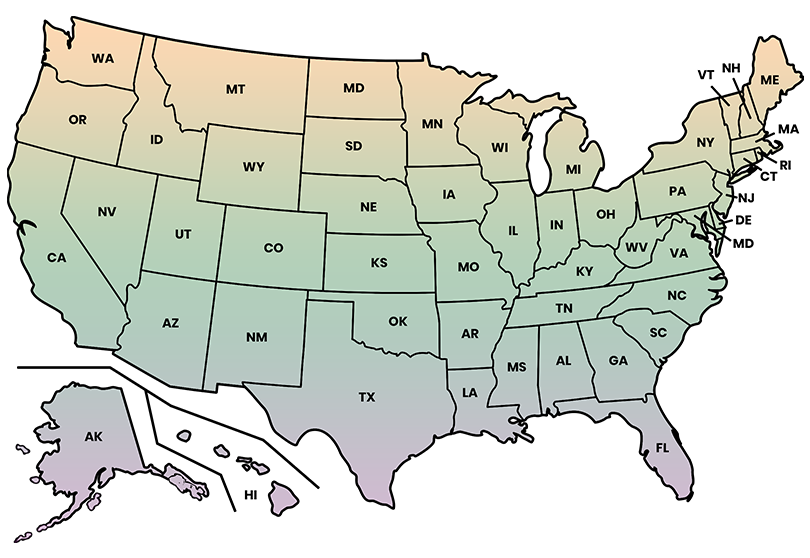If you are operating your business in the state of West Virginia, there are a number of things you should know before you provide pay stubs to employees and contractors.
This resource explains laws and regulations applicable to employers in West Virginia for running payroll and providing pay stubs.

Pay stub regulations in West Virginia
1. Are pay stubs required by law in West Virginia?
Employers in West Virginia must provide their employees with pay stubs every payday.
2. How often do you need a pay stub in West Virginia?
You will need to pay your employees on a monthly basis. As pay stubs are mandatory in West Virginia, you will need to provide pay stubs every time you pay your employees.
3. What information can be included on a pay stub in West Virginia?
The following information must be included in employee pay stubs:
- Employee information such as name, last 4 digits of social security number, and address
- Employer information such as name, employer identification number (EIN), business identification number, and address
- Employee's hourly rate of pay or salary;
- The number of hours for which the employee is being paid;
- Tax Deductions
- the overtime rate of pay, if applicable
- bonus and incentive pay. if applicable; and
- itemized deductions.
- Gross earnings before deductions.
- beginning and ending dates of the pay period.
4. Does West Virginia have a state income tax?
The State of West Virginia requires employers to withhold state income taxes from employee paychecks.
5. Are there any other taxes applicable to West Virginia?
Yes. There are local taxes in West Virginia.
Information needed to generate pay stubs
To provide employees with accurate pay stubs, the information below is required.
- Employee's total allowances
- Employee's exemption status from state withholding
- Employee's filing status and additional state withholding amount
- Whether employee's entire monthly tax was withheld in a single payroll
- Whether employee is two-earner percent
- Whether employee's current pay period wages would cause the threshold to be crossed in the month if withheld
West Virginia wage and hour laws
In accordance with West Virginia wage and hour legislation, employers must provide non-exempt employees with minimum wage, overtime compensation, meal and rest breaks, and paid time-off benefits.
The following aspects are regulated by law:
Minimum wage
West Virginia legislation mandates an hourly minimum wage for workers, which employers must adhere to by paying at least the specified minimum rate.
West Virginia's hourly minimum wage stands at $8.75. Employers with six or more employees at a single location are subject to this.
Overtime pay
In West Virginia, both state and federal laws, particularly the Fair Labor Standards Act (FLSA), govern overtime regulations. These regulations detail the calculation and timing of overtime pay for employees. Typically, overtime pay is required when an employee exceeds 40 hours of work in a single workweek. The standard rate for overtime pay is 1.5 times the regular rate of pay for any hours worked beyond the 40-hour threshold in a given workweek.
Meal break
Employers must provide employees with a minimum of 20 minutes for meal breaks during work days lasting 6 hours or more, at times reasonably chosen by the employer. This is mandatory unless employees are already granted necessary breaks or allowed to eat while working.
Rest break
West Virginia law does not mandate employers to offer rest breaks to their employees.
West Virginia State Payroll Taxes
In West Virginia, payroll taxes fall into two main categories:
- The West Virginia personal income tax (PIT)
- The West Virginia State Unemployment Insurance (UI) tax.
The West Virginia personal income tax
The West Virginia state tax system features four brackets (2.36%, 3.15%, 3.54%, 4.72%, and 5.12%) for tax year 2024 and for the tax year 2025 the tax brackets are(2.22%, 2.96%, 3.33%, 4.44%, 4.82%) applied according to an employee's income level and filing status, including Single, Married Filing Jointly, Married Filing Separately, and Head of Household.
2024 Tax Rates
For Individuals, Joint Filers, Heads of Households, Estates, & Trusts
| WV Taxable Income | Tax Calculation |
|---|---|
| Not over $10,000 | 2.36% of taxable income |
| Over $10,000 to $25,000 | $236.00 plus 3.15% of the excess over $10,000 |
| Over $25,000 to $40,000 | $708.50 plus 3.54% of the excess over $25,000 |
| Over $40,000 to $60,000 | $1,239.50 plus 4.72% of the excess over $40,000 |
| Over $60,000 | $2,183.50 plus 5.12% of the excess over $60,000 |
For Married Individuals Filing Separate Returns
| WV Taxable Income | Tax Calculation |
|---|---|
| Not over $5,000 | 2.22% of taxable income |
| Over $5,000 to $12,500 | $111.00 plus 2.96% of the excess over $5,000 |
| Over $12,500 to $20,000 | $333.00 plus 3.33% of the excess over $12,500 |
| Over $20,000 to $30,000 | $582.75 plus 4.44% of the excess over $20,000 |
| Over $30,000 | $1,026.75 plus 4.82% of the excess over $30,000 |
2025 Tax Rates (Effective January 1, 2025)
For Individuals, Joint Filers, Heads of Households, Estates, & Trusts
| WV Taxable Income | Tax Calculation |
|---|---|
| Not over $10,000 | 2.22% of taxable income |
| Over $10,000 to $25,000 | $222.00 plus 2.96% of the excess over $10,000 |
| Over $25,000 to $40,000 | $666.00 plus 3.33% of the excess over $25,000 |
| Over $40,000 to $60,000 | $1,165.50 plus 4.44% of the excess over $40,000 |
| Over $60,000 | $2,053.50 plus 4.82% of the excess over $60,000 |
For Married Individuals Filing Separate Returns
| WV Taxable Income | Tax Calculation |
|---|---|
| Not over $5,000 | 2.36% of taxable income |
| Over $5,000 to $12,500 | $118.00 plus 3.15% of the excess over $5,000 |
| Over $12,500 to $20,000 | $354.25 plus 3.54% of the excess over $12,500 |
| Over $20,000 to $30,000 | $619.75 plus 4.72% of the excess over $20,000 |
| Over $30,000 | $1,091.75 plus 5.12% of the excess over $30,000 |
West Virginia State Unemployment Insurance (UI) tax
The State Unemployment Tax Act (SUTA) was established to aid individuals facing unemployment by furnishing them with unemployment benefits. This program enables states to amass funds, which are subsequently allocated for the provision of unemployment insurance benefits to those who are jobless.
SUTA rates vary between 1.50% to 8.50%
The taxable wage base has been elevated from $9,000 to $9,521 in 2024.
West Virginia tax filing
- Report of New Employees
- Report of Independent Contractors
- West Virginia individual income tax return filing (form IT-140)
- West Virginia estimated individual income tax filing (form IT-140ES)
- Filing a Quarterly contribution and wage Report(form WVUC-A-154-A)
Report of New hire Employees
In West Virginia, it's important to report new hires to the West Virginia New Hire Reporting Center within 14 days of their employment start date. You can do this by using Form W-4.
How to report employees' new hire in West Virginia?
You can use any of the following options to report new hiring.
| Online | Fax | |
|---|---|---|
| West Virginia New Hire Reporting Center | Address Information: West Virginia New Hire Reporting Center P.O. Box 2998 Trenton, NJ 8690 Public Phone: 877-625-4669 | Fax 1: 877-625-4675 |
Report of Independent Contractors
In West Virginia, it's crucial to report independent contractors to the West Virginia New Hire Reporting Center within 14 days of their employment start date, particularly when payment for their services amounts to $2,500 or more.
| Online | Fax | |
|---|---|---|
| West Virginia New Hire Reporting Center | Address Information: West Virginia New Hire Reporting Center P.O. Box 2998 Trenton, NJ 8690 Public Phone: 877-625-4669 | Fax 1: 877-625-4675 |
Filing a Quarterly Contribution and wage Report(form WVUC-A-154-A )
In accordance with West Virginia Unemployment Law, the majority of employers are responsible for unemployment taxes and must report employee wages on a quarterly basis. Each quarter, employers must submit a comprehensive Quarterly Wage and Contribution Report.
The deadlines for filing these quarterly reports are as follows:
| Reporting Period | Due Date |
|---|---|
| Quarter 1 | April 30 |
| Quarter 2 | July 31 |
| Quarter 3 | October 31 |
| Quarter 4 | January 31 |
West Virginia individual income tax return filing (form IT-140)
The 2024 tax season officially begins on Monday, January 27, 2025, as both the IRS and the West Virginia Tax Division will start accepting income tax returns on this date.
Key Deadlines:
- Filing & Payment Deadline: Tuesday, April 15, 2025 – This is the final date to submit 2024 state income tax returns and pay any taxes owed, aligning with the federal deadline.
- Extension Requests: Taxpayers needing more time to file must submit an extension request by April 15, 2025. If granted, the extended filing deadline is Wednesday, October 15, 2025.
- Important Note: An extension to file does not extend the deadline to pay. Any tax owed must still be paid by April 15, 2025, to avoid penalties and interest.
West Virginia estimated individual income tax filing (form IT-140ES)
If your estimated tax liability surpasses your anticipated income tax credits, you're required to make quarterly estimated tax payments. These payments bridge the gap between your expected annual income tax and the credits you expect to receive, like the Family Tax Credit or Credit for Income Tax Paid to Another State. This ensures you fulfill your tax obligations regularly throughout the year.
| Reporting Period | Due Date |
|---|---|
| Quarter 1 | April 15 |
| Quarter 2 | June 15 |
| Quarter 3 | September 15 |
| Quarter 4 | January 15 |
Have all the information handy?
With SecurePayStubs, you can calculate accurate federal and West Virginia state taxes for your employees and generate pay stubs securely.
Processing payroll manually is complex
As a business owner who runs payroll manually, you will need to keep up with ever-changing payroll laws. You already have a lot on your plate and you might not want to get into the complex process of pay stub generation.
With SecurePayStubs, you can create a pay stub using our online paystub generator for your employees with accurate federal and West Virginia state taxes and independent contractors in less than 2 minutes. Enter the basic employee and employer information, select a pay stub template for free, and let SecurePayStubs calculate the applicable payroll taxes accurately.
Spend less time generating pay stubs and more on your business growth.
This article has been updated from its original publication date of February 15, 2025.




